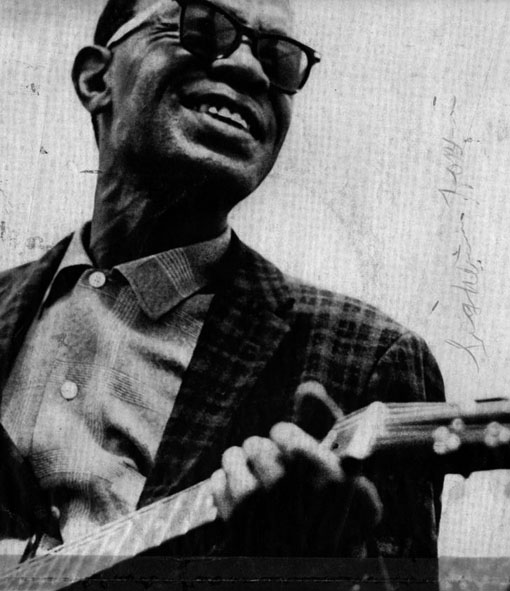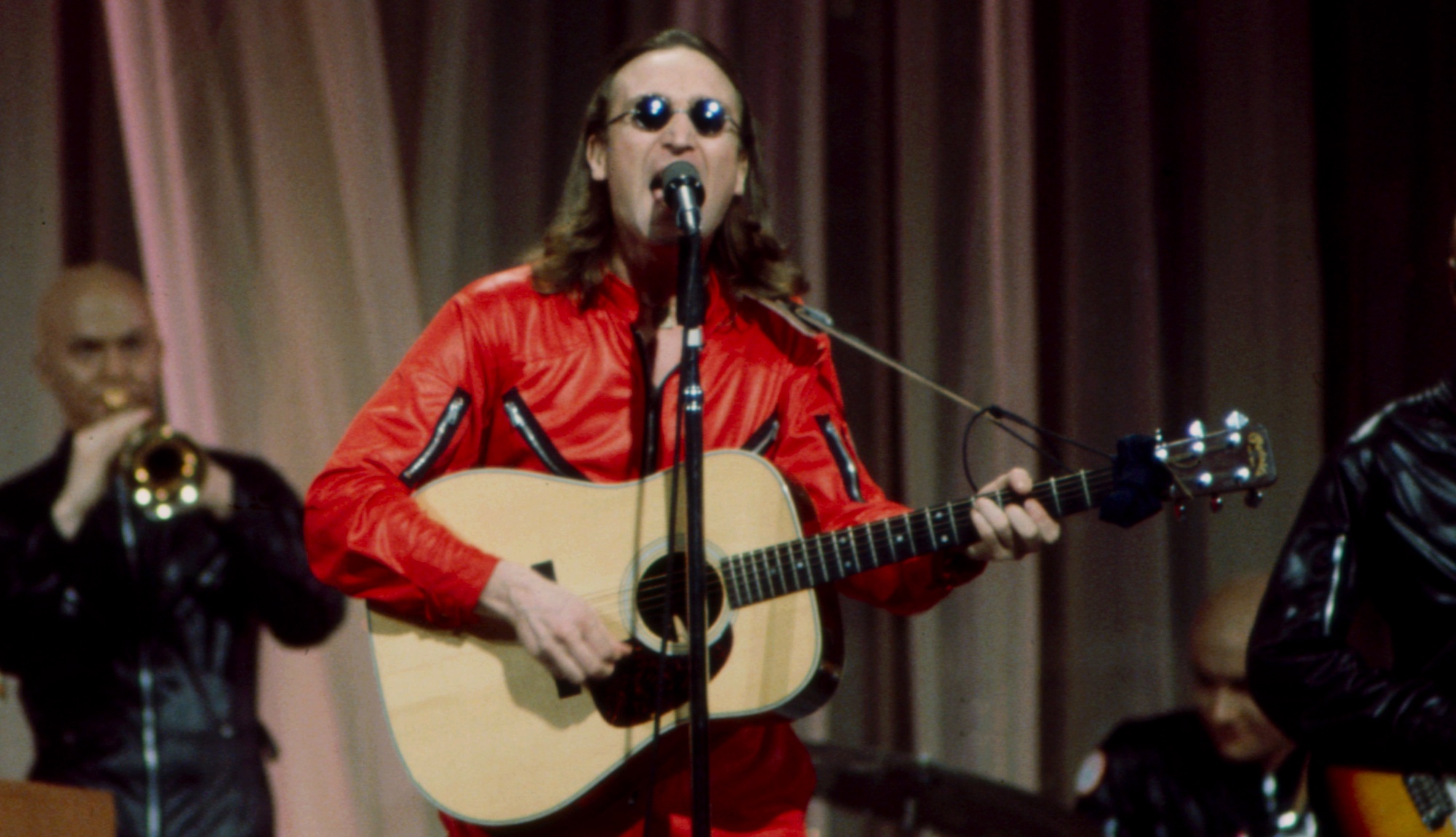All the latest guitar news, interviews, lessons, reviews, deals and more, direct to your inbox!
You are now subscribed
Your newsletter sign-up was successful

The first time I heard the Delta Blues was from a John Hammond record called Country Blues.
It was 1987, I was in my room with my best friend and we had hit up this great record store in Philly called 3rd St Jazz and Rock. I was searching for someone that played solo acoustic guitar and harmonica other than Bob Dylan or Neil Young. The man at the store brought out that old John Hammond record and I took it home.
I will never forget the moment when the needle of my Panasonic record player hit the wax and the thumping sounds of John Hammond performing "Statesboro Blues" came through the speakers. I was hooked. That was one of the great musical epiphanies of my life. It was like I had been searching my whole musical life to find this sound, and here it was. This scratchy old record circa-1963 was about to change my whole world.
I had been an acoustic flat pick strummer, writing my tunes and making my chords but that was all gone now. When I heard the Delta Blues John was playing, I realized that the acoustic guitar was some badass shit. Forget about chords! The blues was all about this driving rhythm with melodies and licks intertwined. It was dark, it was deep, it was dirty.
The blues was simple yet the most complex and passionate music I had heard. It was amazing how much expression and flavor was coming out of a relatively small chord palette. It got to a point where if I heard a singer songwriter play a minor chord to express sadness, I would think, "Damn, that's cheating." With the blues, if you want to express sadness you don't change the chord, you bend the note, you sing it dark and get your point across.
That John Hammond record was a doorway into a whole world. Through that record I discovered the legends. Robert Johnson, Muddy Waters, Howlin' Wolf, Mississippi Fred McDowell, John Hurt, Big Bill Broonzy, Lightnin' Hopkins, Bukka White, Leadbelly, Sleepy John Estes and many more. The world of the Delta Blues.
All of those bluesmen are so different. The styles are so highly characterized that I'm hard pressed to say they are the same genre. Lightnin' Hopkins, for instance, is so unique in his approach to the blues that I feel it's his own kind of music and that goes for all those players.
All the latest guitar news, interviews, lessons, reviews, deals and more, direct to your inbox!
Don't get me wrong here, I'm no purist, I'm no scholar, but nothing gets me more pissed when I say blues and someone says Eric Clapton or Stevie Ray Vaughan. I'm a huge Clapton and Stevie Ray fan, but come on now, the blues is Robert Johnson, the blues is Son House. The blues is one man, one voice, one guitar.
The beautiful thing about today is that you can just go onto YouTube and see this footage of all these cats performing. Where I used to wear my records and cassettes out trying to figure out what these cats were doing, now I can see this great old footage and it makes the learning process a lot easier.
- When learning the blues, I like to pick a song and really explore it. I usually find that I can get an approximation of what these guys are doing. For me, I want to get the feeling and the flavor. I want to learn something new that will inspire me to write something new.
So many of my tunes and chords have come from stumbling across a cool lick while I'm trying to figure out what the hell these cats are playing. I found my own style of guitar playing and singing simply by trying to emulate the blues singers of the Mississippi Delta.
When I approach the blues, I want it to sound different than the blues. I want to break the rules, break the form and be unique. You'll find that once you get inside what these players are doing that for the most part they don't stick to a 12-bar blues pattern or any pattern at all sometimes. It's all very spontaneous and emotionally driven.
Damn, it sounds good. Can you feel it?
You got to get inside it, man.
I've always felt that the greatest rock 'n' roll players started with the blues. Don't start with Jimmy Page, start with Robert Johnson; don't start with Keith Richards, start with Chuck Berry; don't start with Jack White, start with Skip James. Get it, man?
Start with the root and grow like a tree. Go back to the roots of popular music. The greatest players have the greatest influences so before you rock out, take some time to peep out the roots of rock 'n' roll and spend some time with this music made in the USA. The Delta Blues will take you on a journey. A journey for life.
It’s a road that keeps going. So, put on your travelling shoes, string up that beater and let your foot stomp.
G. Love, aka Garrett Dutton, has been the front man and founder of the alternative hip-hop blues group G. Love & Special Sauce since their inception in 1993. Widely known for his upbeat hits "Cold Beverage," "Baby's Got Sauce" and "Hot Cookin'," G. Love returned to his blues and country roots on his latest release, Fixin' To Die (Amazon, iTunes), produced by Scott and Seth Avett. A road dog if one ever existed, G. Love performs roughly 125 shows a year all over the world including Australia, Japan, Brazil, UK, Canada and the U.S. G. Love teamed up with Gretsch to create his own signature model, the Gretsch G. Love Signature Electromatic Corvette, which features a pair of TV Jones Power'Tron pickups, deluxe mini-precision tuners and a cool Phili-green color scheme with competition stripe that would make ANYONE from Philadelphia proud! Check it out here.
